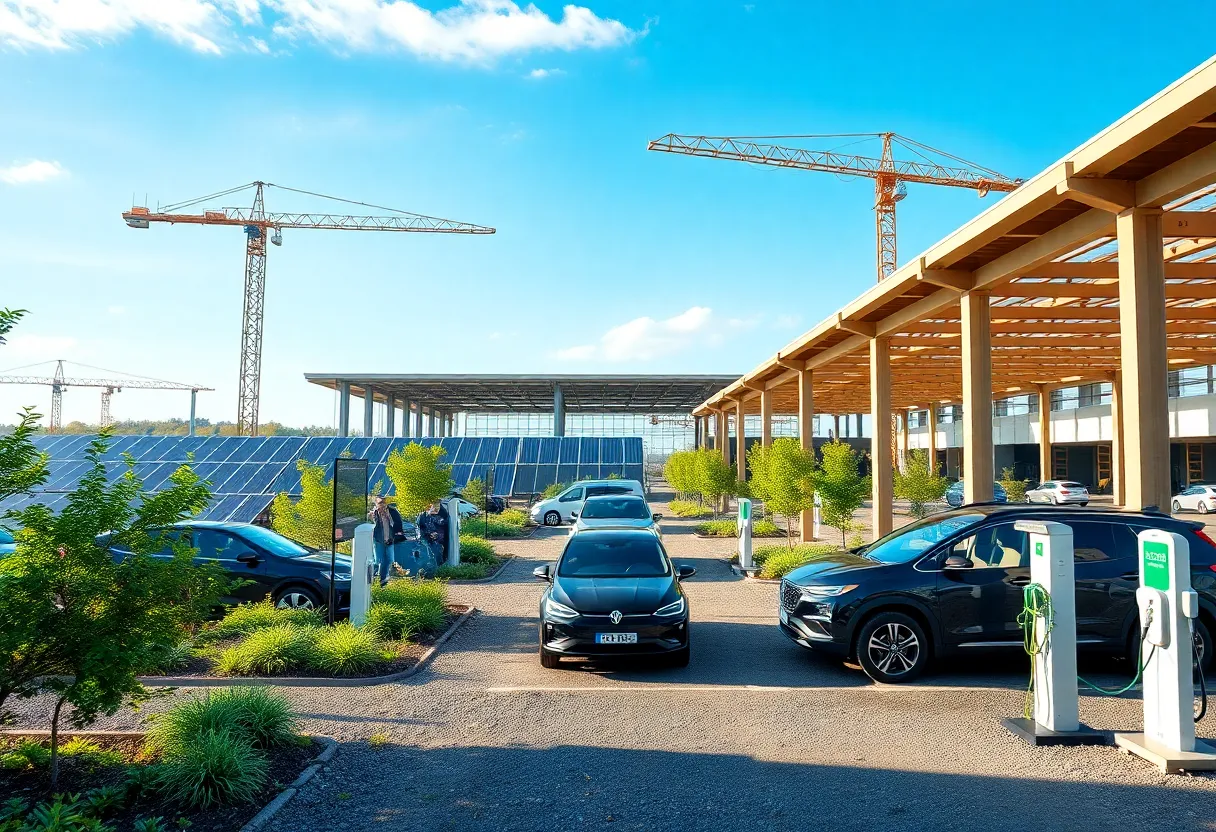

Scout Motors Electric Vehicle Plant
Scout Motors is set to change the auto sales landscape in South Carolina with plans to build a new electric vehicle plant in Blythewood. This initiative, backed by Volkswagen, promises to create 4,000 jobs and produce 200,000 electric SUVs annually. However, state laws restricting direct sales from manufacturers to customers pose challenges. Scout aims to leverage online sales through an app, potentially bypassing traditional dealership models. The movement for legislative change is gaining momentum, backed by local government support, as Scout looks to redefine how vehicles are sold in the region.
In Blythewood, South Carolina, the buzz is all about Scout Motors, a vibrant new player in the electric vehicle (EV) sphere. Backed by the well-known Volkswagen, this company is gearing up to revolutionize how consumers purchase electric SUVs. However, there’s a bump in the road—South Carolina has laws that prevent manufacturers from selling vehicles directly to customers. This means all new cars must go through traditional dealerships.
Scout Motors is not just sitting quietly; they are investing billions of dollars into a brand new auto plant right in Blythewood. This ambitious venture is set to not only boost the local economy but also promises to create a whopping 4,000 jobs. The plant is expected to produce around 200,000 electric vehicles annually when it opens in 2027. But how do you sell all those EVs with the current dealership model in place?
Scout’s vision is to allow customers to buy their vehicles online through a user-friendly app, similar to the experience offered by BMW at their test track in Greer. This new sales model aims to streamline the buying process by covering financing, titling, and paperwork all in one go. Imagine just clicking a few buttons and driving off in your new electric SUV without the hassle of a dealership!
The reality, however, is that vehicle sales in South Carolina rely heavily on dealerships. This model allows buyers to compare prices and shop around but does not support online sales, leaving many potential customers wanting. Additionally, the state is one of about two dozen that has restrictions against direct sales, meaning Scout Motors can’t simply sell its products to eager buyers right from the get-go.
Furthermore, South Carolina laws also prevent manufacturers from owning service centers. This puts customers in a bit of a pickle, as they may have to travel to neighboring states for repairs and servicing. Some local residents have voiced concerns about increased traffic and changes to their community dynamics due to the new plant, adding another layer to the conversation around direct sales.
On the flip side, there’s a growing call for a shift in these regulations. Scout Motors has been vocal about advocating for all-electric vehicle manufacturers to have the right to sell directly to consumers. They have found an ally in South Carolina’s Governor, who acknowledges the rising demand for online purchasing without the need for middlemen. This evolving landscape may pave the way for legislation that enables Scout and future EV manufacturers to bypass traditional dealerships.
While excitement mounts with Scout’s investment and plans, the company has expressed that should direct sales not be allowed, they are prepared to sell through other states where they can obtain the necessary licenses. This adaptability shows they’re willing to continue operations no matter what, striving to provide their vehicles to eager customers.
To facilitate this expansion, the new plant isn’t just about car production; it’s also linked to significant infrastructure upgrades, including a $200 million investment for a Scout Drive Interchange on Interstate 77, aimed at improving access to the site. This project is expected to wrap up by December 2026, coinciding nicely with the plant’s opening.
Not to be forgotten, Scout has inspired a wave of nostalgia. The original Scout brand produced iconic gasoline-powered vehicles for two decades before halting production in 1980, and now they’re back, but with a modern, electric twist at a price point of under $60,000.
As Scout Motors builds its future in South Carolina, the potential for a shift in how vehicles are sold looms large. The combination of community impact, economic development, and legislative change could redefine the auto industry in the Palmetto State. The anticipation of the new electric SUVs and the conversation about direct sales rights harmoniously intertwine in this exciting journey. Keep your eyes peeled, Blythewood; the future is on its way!
News Summary A routine shopping trip turned chaotic on April 1 when gunfire erupted inside…
News Summary Castle Peak Holdings' acquisition of Snow King Resort in Jackson Hole marks a…
News Summary A tragic shooting incident in Wando, South Carolina resulted in the death of…
News Summary Beau Atkinson, a standout EDGE rusher from Raleigh, North Carolina, has committed to…
News Summary Smalls Sliders is set to open in Spartanburg on February 18, 2025. The…
News Summary The South Carolina Army National Guard (SCARNG) has secured a partnership with Verizon…